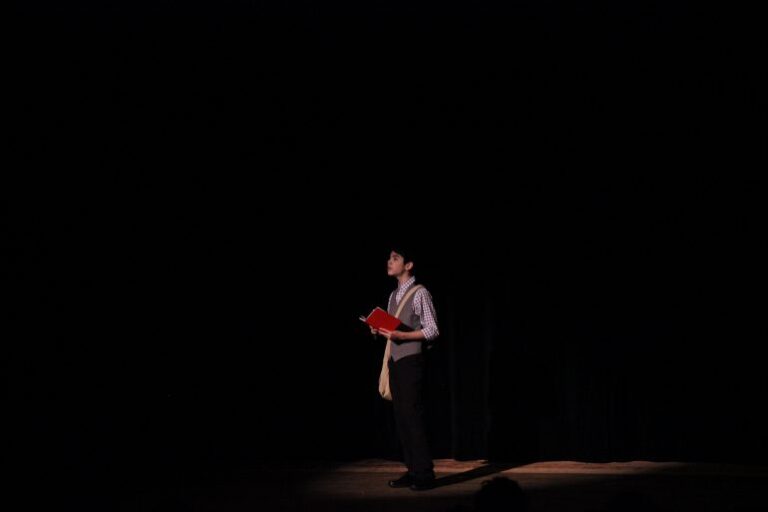Colson Whitehead on Slavery, Elevators, and Donald Trump
I got to know Colson Whitehead back when he was infiltrating the poker world for his non-fiction narrative, The Noble Hustle. His new novel, The Underground Railroad, has been honored by none other than Oprah Winfrey with her latest book club selection. I recently caught up with Colson over Skype. A condensed and edited transcript of that conversation follows.
Matt Matros: It’s been almost four years since we played poker together in Atlantic City. Back then you said you weren’t writing fiction, but that you maybe had an idea for the next book. Was this that book?
Colson Whitehead: No, at the time I had an idea about a writer in Brooklyn going through a midlife crisis. I’ve always wanted to do a contemporary New York book. But then, once I finished The Noble Hustle, I realized that the voice was strangely similar to the voice I had envisioned for the novel, so perhaps it didn’t make as much sense. I’d been thinking about the underground railroad book on and off since the year 2000, and I’d been putting it off because the research seemed very daunting, depressing, and despair-causing. So I put it off and never really got a handle on it.
How did it become less daunting, or did it not and you just decided to take it on anyway?
I think I was due for a challenge. I hadn’t written fiction in five years, so I was ready to do the hard one. But the more research I did, the more I grew depressed over what I’d have to put Cora through, and put her siblings though, and put all the people she meets through in order to have a realistic plantation life. A second wave feeling of “I’ve never been this mean to my characters before” set in.
Let’s talk about Cora for a second. She’s been through such incredible trauma, but she’s not defined by it. How did you find that balance where such terrible things happened to her but she still retained her humanity?
Well I think her experience is similar to most slave experiences, especially most slave women and girls. There’s a high rate of suicide. But you keep going. You want to try and protect your children, you hope someday the torture will end, and most slaves did have that fortitude to keep enduring under this brutal system. Then there are the few people who despite the fact that if they were captured they’d be maimed or killed, made that step to leave the plantation and run—either by themselves, or they’d avail themselves of the railroad. The people who took that first step off the plantation toward freedom had that fortitude and strength in them, or they’d never have taken that first step.
You’ve used the allegory technique in other novels, and written a lot about race without being explicit, sometimes without even mentioning race at all. Was it a difficult transition to use such a direct mode of storytelling here?
I do have the fantasy element once she gets on the railroad, and I’m allowed to play with time and space and alter history in a way that I like. But that first section is historical, and to have it be realistic and accurate was a challenge. The voice of the book came to me quickly once I did the prologue with Ajarry, Cora’s grandmother. I knew the voice would be matter-of-fact, and a lot of that comes from the matter-of-factness of slave narratives. They’ve been free for years or decades, and when they describe their experiences through their interviews or through their own books, the most horrific stuff is laid out in this really direct manner—not very emotional, unadorned. So that became a feature of the narrator in this book, and it seemed to be a useful choice.
You’ve said that while a lot of depictions of plantation life tell the truth, there was another layer of truth you wanted to get to. But even in this book, we’re told there’s another half of the plantation that’s even worse than what Cora’s experiencing. Is there yet another layer of truth that wouldn’t work in narrative because it’s just so horrifying?
There’s no way that someone who grew up free, and can vote, and has self-determination, can contemplate fully the horror of Deep South plantation life. I did enough research to get going, and when I would go back to flesh out different parts and do more research, I was horrified anew at the latest atrocity I would uncover. The scheme where there’s a northern part of the plantation and a southern part, I wanted to have a division that reflected life on different plantations. Some plantations were more cruel than others. You’re a slave either way, but some masters didn’t have the sadistic streak that others did, and there was a variety to the experience that I saw from slave narratives. You could be on a farm with two slaves, or you could be on a plantation with 100 slaves, and a master’s personality can have different characteristics. Even on the worst plantation in Georgia, it might be worse in Louisiana. There’s always a deeper, worse plantation, particularly as cotton production becomes an incredible economic engine and you just want to maximize productivity.
I think we start realizing that it’s ultimately not going to matter where Cora goes. She’ll never escape slavery completely, as is reflected in the line: “America remained her warden.” And then later, the Northern freeman orator says of slavery, “its scars will never fade.” Do you see a connection between those two things and how little or how much we’ve progressed since then?
Well yeah, the practices of the slave patrollers 150 years ago—demanding an ID of any freed slave or person of color they saw—are continued in law enforcement now in stop and frisk. And now you’re always on guard and subject to white authority. Obviously, by the very fact we’re having this conversation, race relations have progressed in 150 years. But in terms of Cora, she can be free and move to the North, but the Fugitive Slave Act allows her master to come and get her even if she’s in a free state. She can move to the West, and the West in the 1850s was pretty racist. So even if she is free from the immediate peril of the plantation, there is the factor of race in free states and slave states that she has to confront.
In the grand scheme of human civilization, the events in this book really aren’t that old. There are people who are alive now who were born not too long after this happened, and we’re still feeling the effects. How do we reckon with that today?
Nobody wants to feel that nothing can change or that nothing does change. Ten years ago who would’ve thought we’d have a black president? For two terms? The capacity of people’s goodness can be surprising, in addition to their capacity for cruelty. But 150 years is definitely not a long time, and if you listen to the rhetoric of the Trump campaign, or Trump rallies…that human need to have an other, in the campaign’s case it’s anti-woman, anti-Muslim, anti-Mexican…
He’s anti-pretty much everything at this point.
Yeah, and that impulse to demonize the other is still present, still a potent force, and still motivates a lot of human behavior.
On a brighter note, I’m sure when working on this book, it probably never dawned on you that Oprah would call and say she was picking you for the book club.
I started publishing when the book club came into being, so the first question anyone asked when I said I was a writer with a book was, “oh, is Oprah calling you yet?” Strangely, no. My book is about elevator inspectors, and I don’t know if it got to her desk. When I got word that Oprah had picked The Underground Railroad, it was April and I had just finished handing in copy edits, so I wasn’t thinking about how it would fare out in the world. It was surprising, and I was very ecstatic. I know when my books are boiled down to two-sentence descriptions, it’s going to turn off certain readers. Who wants to read a book about elevator inspectors? A certain person is like, “yes!” and a lot of people are like, “huh?” Oprah gets the book into the hands of people who haven’t heard of me, and it opens up a huge number of readers who love books and are eager to have a book recommended to them.
Speaking of The Intuitionist, I couldn’t help but notice that one of Cora’s first acts when she leaves the plantation is to ride an elevator. Was that a special Easter egg for loyal Colson Whitehead fans like myself?
It seemed like something she would find wondrous, so it seemed to fit. I deliberated taking it out, but it seemed to make sense.
You were going to take it out just because it was elevators again?
Yeah. Yes. I often overpolice myself like that.


